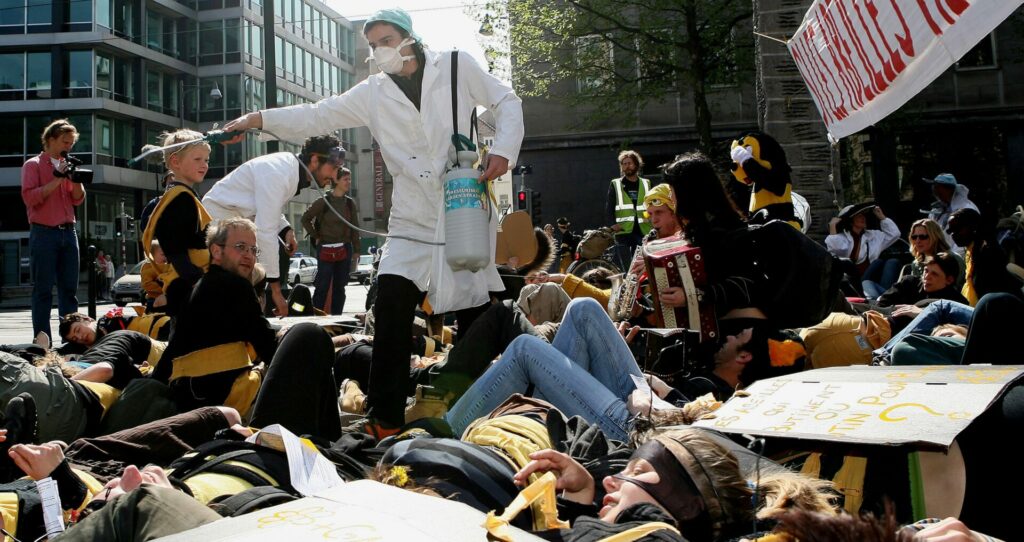While pesticides have not been used in public spaces in Brussels since 2019, the region is looking to take this a step further by reducing the use of pesticides in private spaces too.
Numerous studies have revealed the harmful impact of pesticides on biodiversity as well as on people's health, resulting in neurological diseases, endocrine disorders and fertility problems. More specifically, a recent test for pollutant contamination among children in Belgium showed that traces were found in the majority of samples, highlighting the issue on a local level.
"Reducing the use of pesticides in favour of more environmentally friendly methods is essential to improve the health of Brussels residents, especially the most vulnerable, such as children on sports fields or people living near fields that are sprayed with the pollutants," Alain Maron, Brussels environment minister, said.
While the use and sale of a product is a federal competency, the Region has committed itself to the ecological management of public spaces for several years.
With its new Plan for Pesticide Reduction 2023-2027, it will go further to reduce the use of pesticides in private spaces too by encouraging individuals to use non-polluting alternatives when gardening and managers of private spaces to change their practices.
Related News
- Brussels authorities move to protect insect species necessary for pollination
- Belgium wants to end export of banned pesticides
For this purpose, the Region will develop awareness campaigns while educational kits and training courses will be offered to answer people's questions about effective alternatives and what to do with their pesticide stocks.
"Brussels is leading by example. We hope that the federal agriculture minister will also assume his responsibility to protect the health of Belgians and biodiversity," Maron concluded.

